Affiliate links on Android Authority may earn us a commission. Learn more.
How to connect a Chromebook to a monitor
We don’t give Chromebooks enough credit for the workhorses they are. When you connect your Chromebook to a monitor, you can get work done just as you would on a traditional machine with minor hiccups. Ports are sometimes confusing, so in this guide, we’ll show you how to connect a Chromebook to a monitor.
Read more: The best Chromebooks you can buy
QUICK ANSWER
To connect your Chromebook to a monitor, you can use the HDMI port if your Chromebook has one, with an HDMI cable. If not, you will need to use a USB-C to HDMI/DisplayPort/USB-C cable, depending upon the input on your monitor. You can also connect your Chromebook to a monitor wirelessly using Chromecast.
KEY SECTIONS
How to connect a Chromebook to a monitor
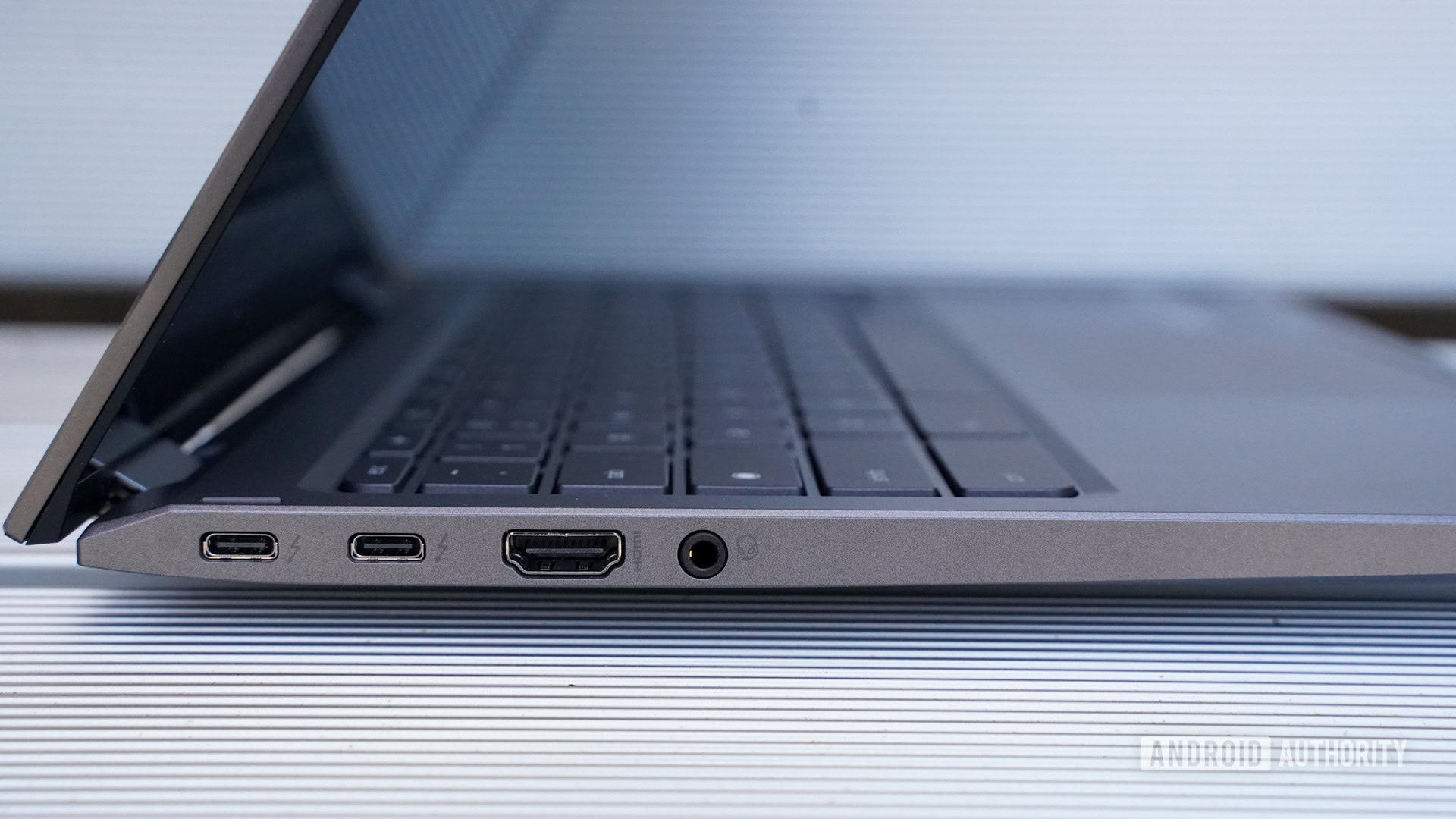
There are a couple of ways to connect a Chromebook to a monitor or a TV. You can choose between a wired and wireless solution. Wired is generally the better option, but you may need to purchase one since it requires a compatible cable. The common display output ports you can find on a Chromebook are HDMI and USB-C, with the latter being more common.
So you’re going to need a cable that matches the display output port on your Chromebook on one end, and the display input port on your monitor on the other end. Monitors typically have HDMI, DisplayPort, or USB-C inputs now. So in most cases, you should be able to get by with an HDMI cable, a USB-C to USB-C display cable, or a USB-C to HDMI cable. You can also use a USB-C hub and a compatible cable in combination with one.
Connect using an HDMI or USB-C cable
Once you’ve determined what type of cable or hub you need and acquired it, connect the cable to your Chromebook, generally to the HDMI or USB-C port, or the hub.
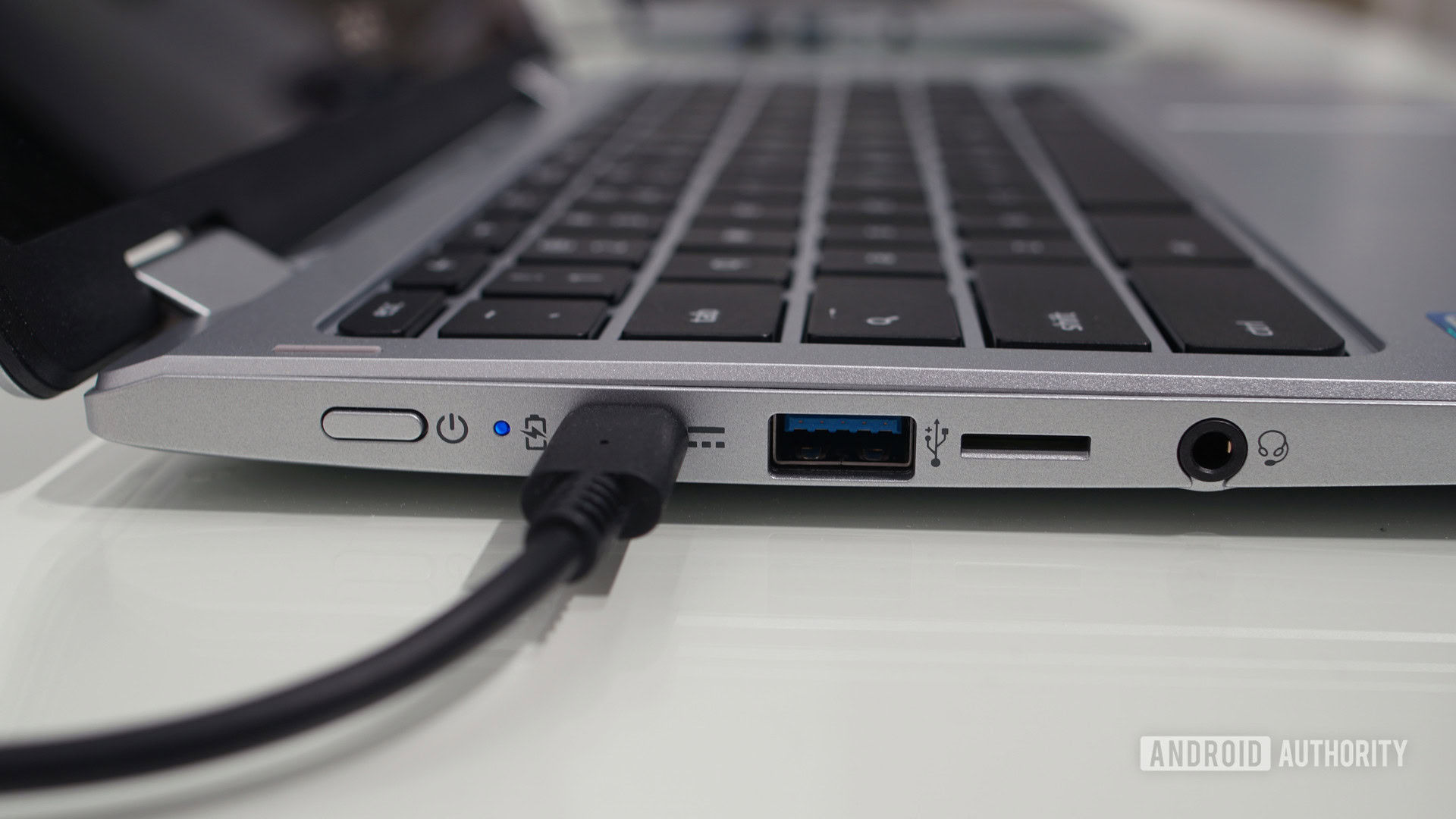
Connect the other end of the cable to the input port on your monitor, generally HDMI, DisplayPort, or USB-C.
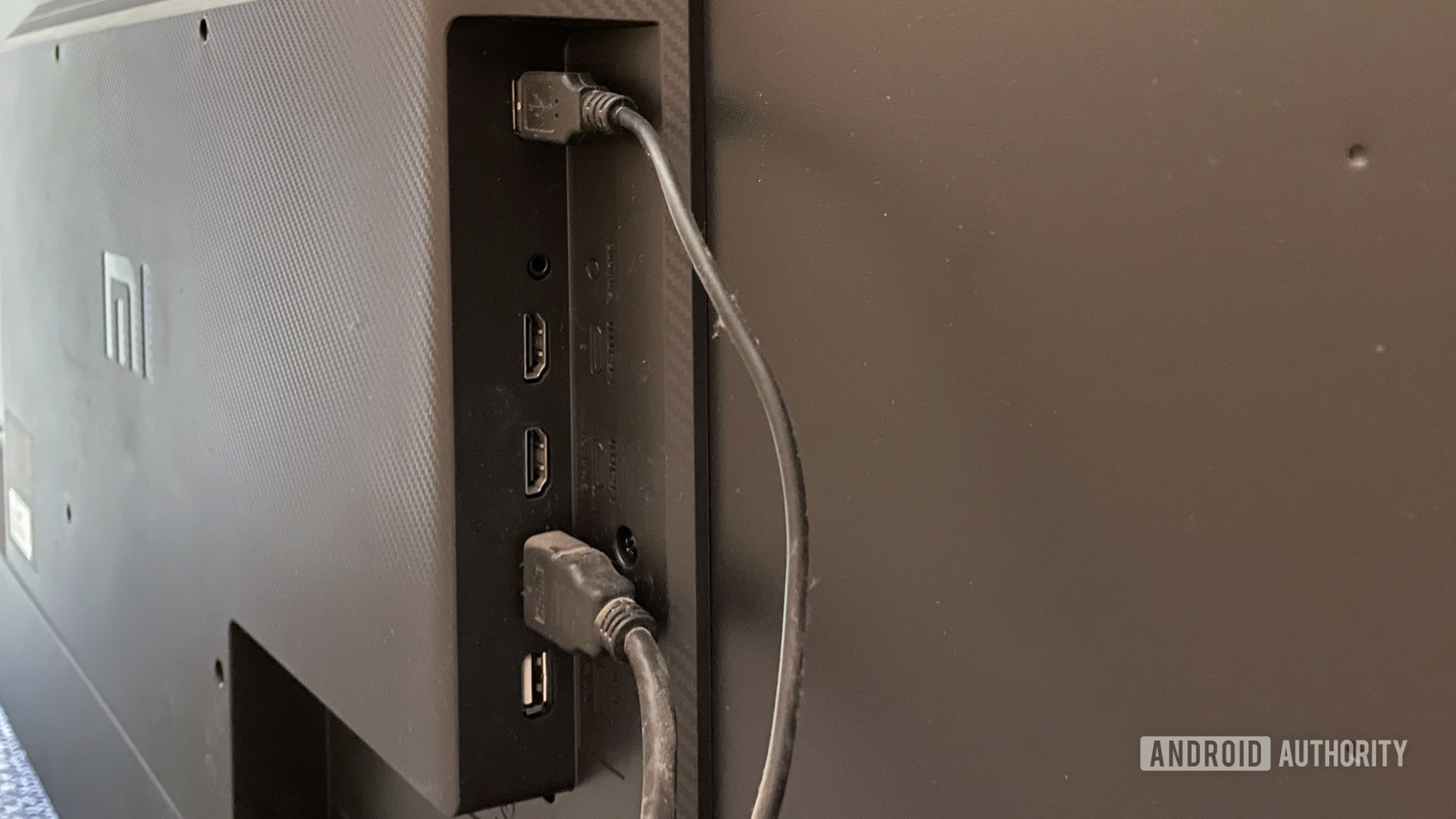
Open the Settings app on your Chromebook, either via search or by clicking the time, then the Settings gear icon.
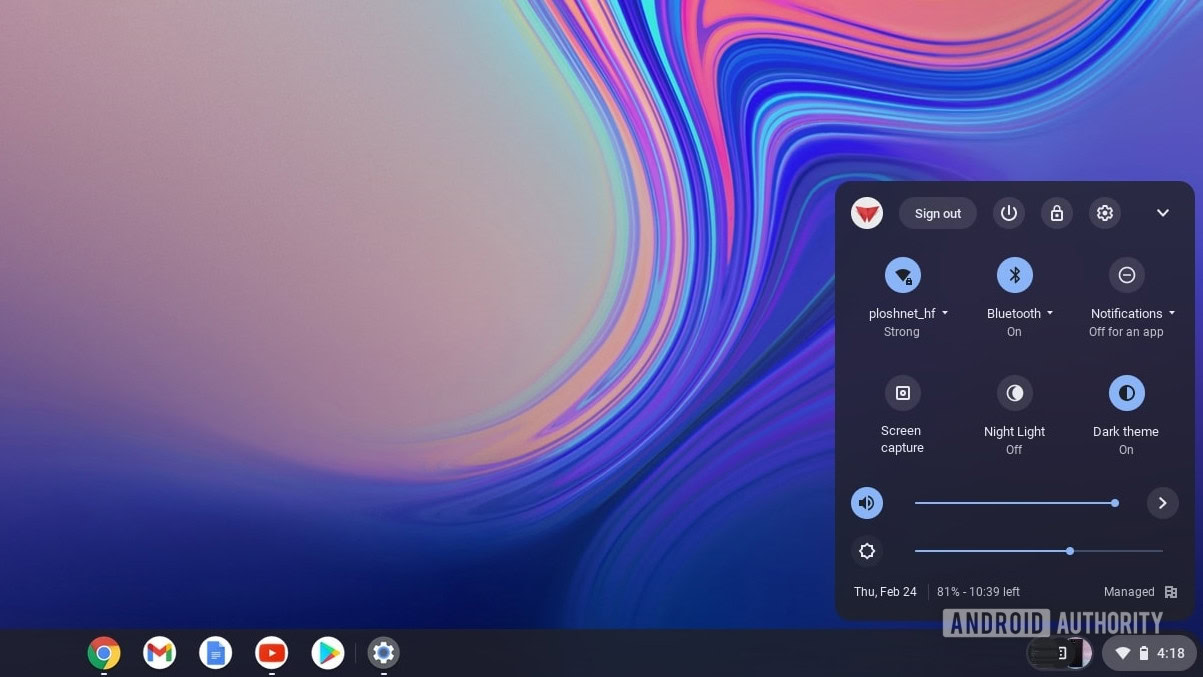
Click Device in the left navigation pane.
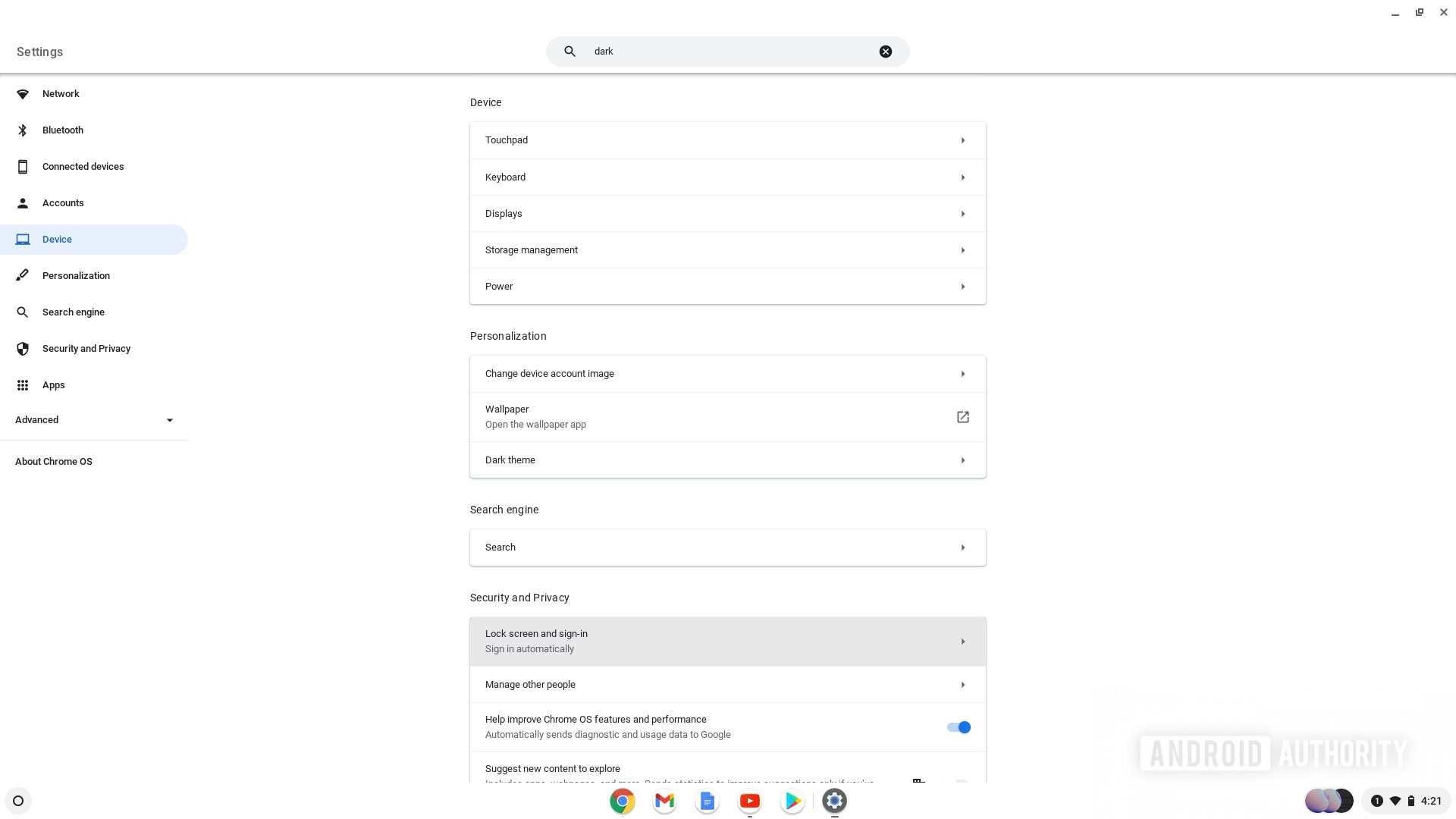
Click Displays. Your monitor will be listed here.
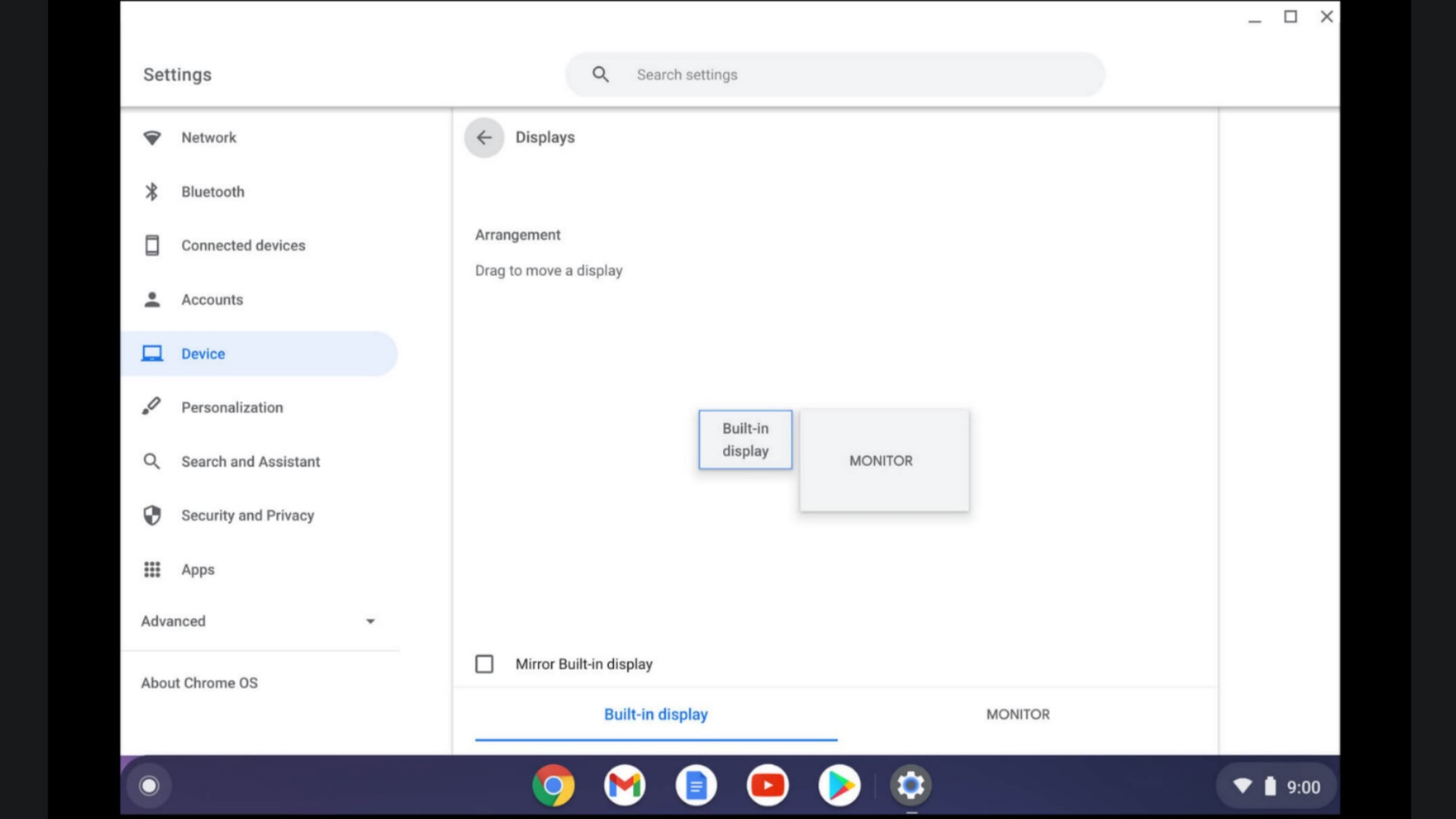
Click on the name of your monitor to adjust the settings. Check the Mirror Internal Display checkbox if you want to mirror your Chromebook screen.
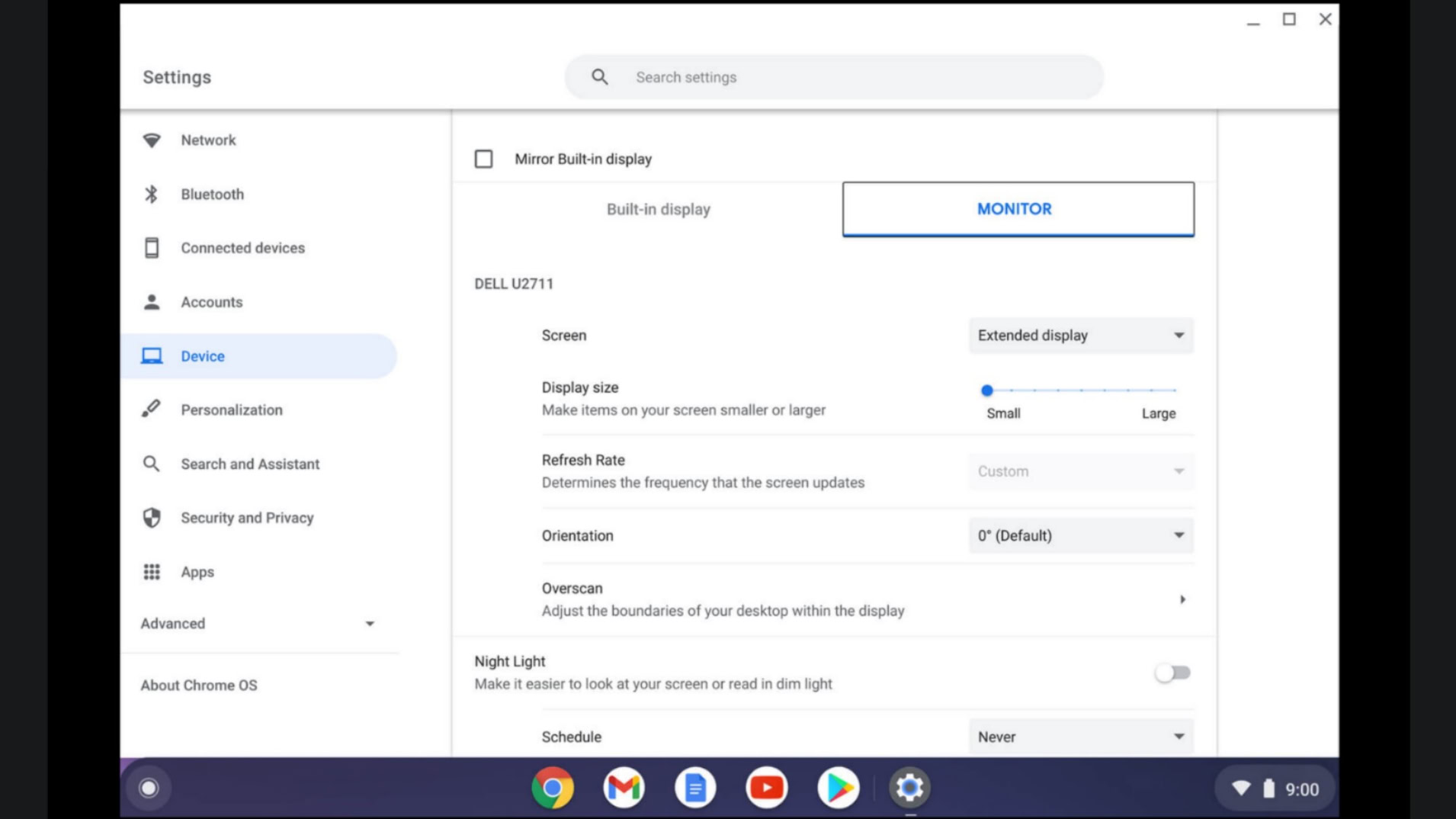
Also great options: The best USB-C adapters
Connect to a monitor using Chromecast
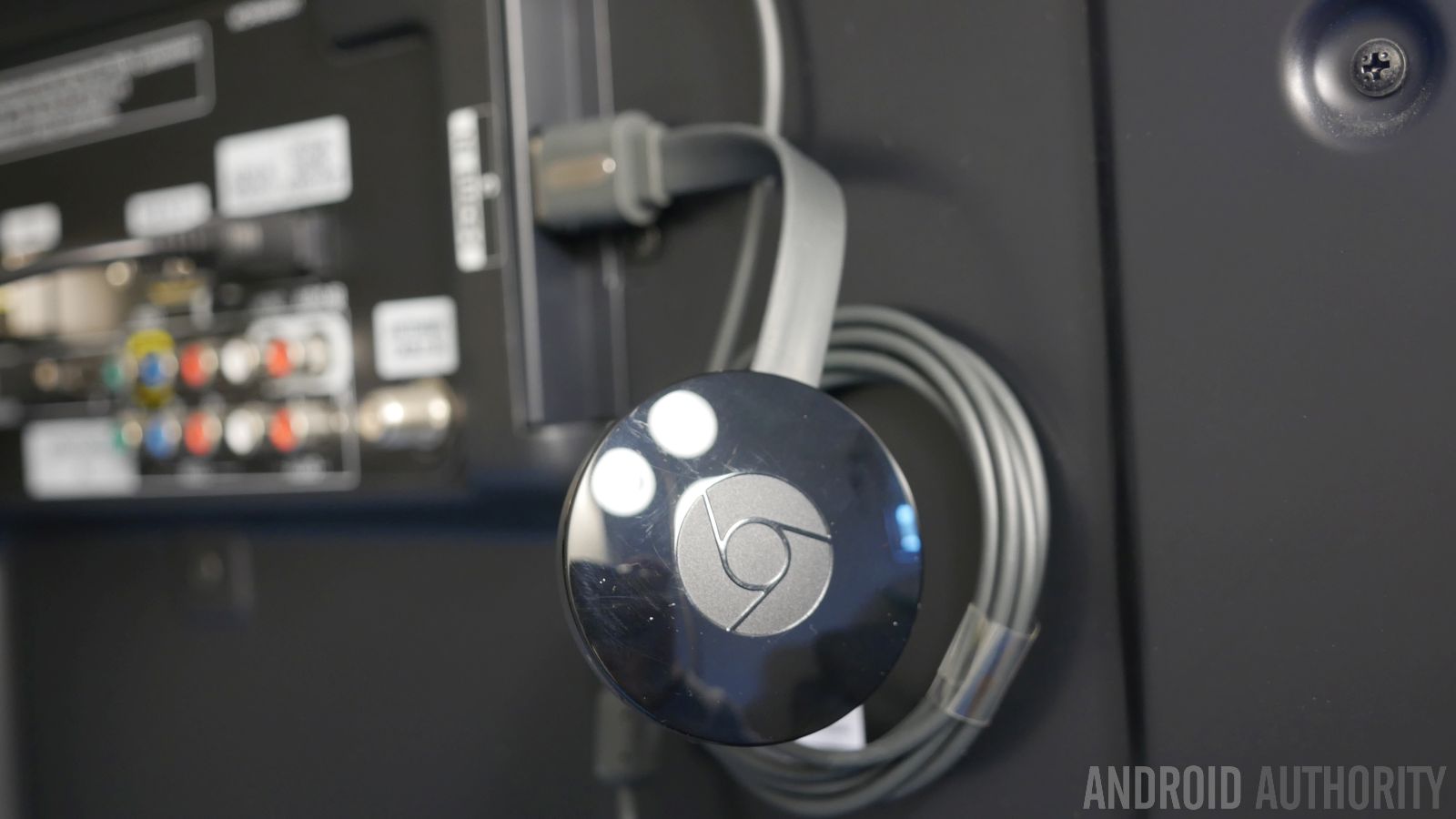
Another easy, albeit slightly less reliable, way to connect your Chromebook to a monitor is by using a Chromecast. It’s Google’s casting protocol, so you’ll need to have a Chromecast-enabled device — either a monitor or TV with a Chromecast device attached, or a TV that has Chromecast built-in.
Open Google Chrome and navigate to the website you want to cast. Click the three-dot menu button at the top right, and click on Cast…
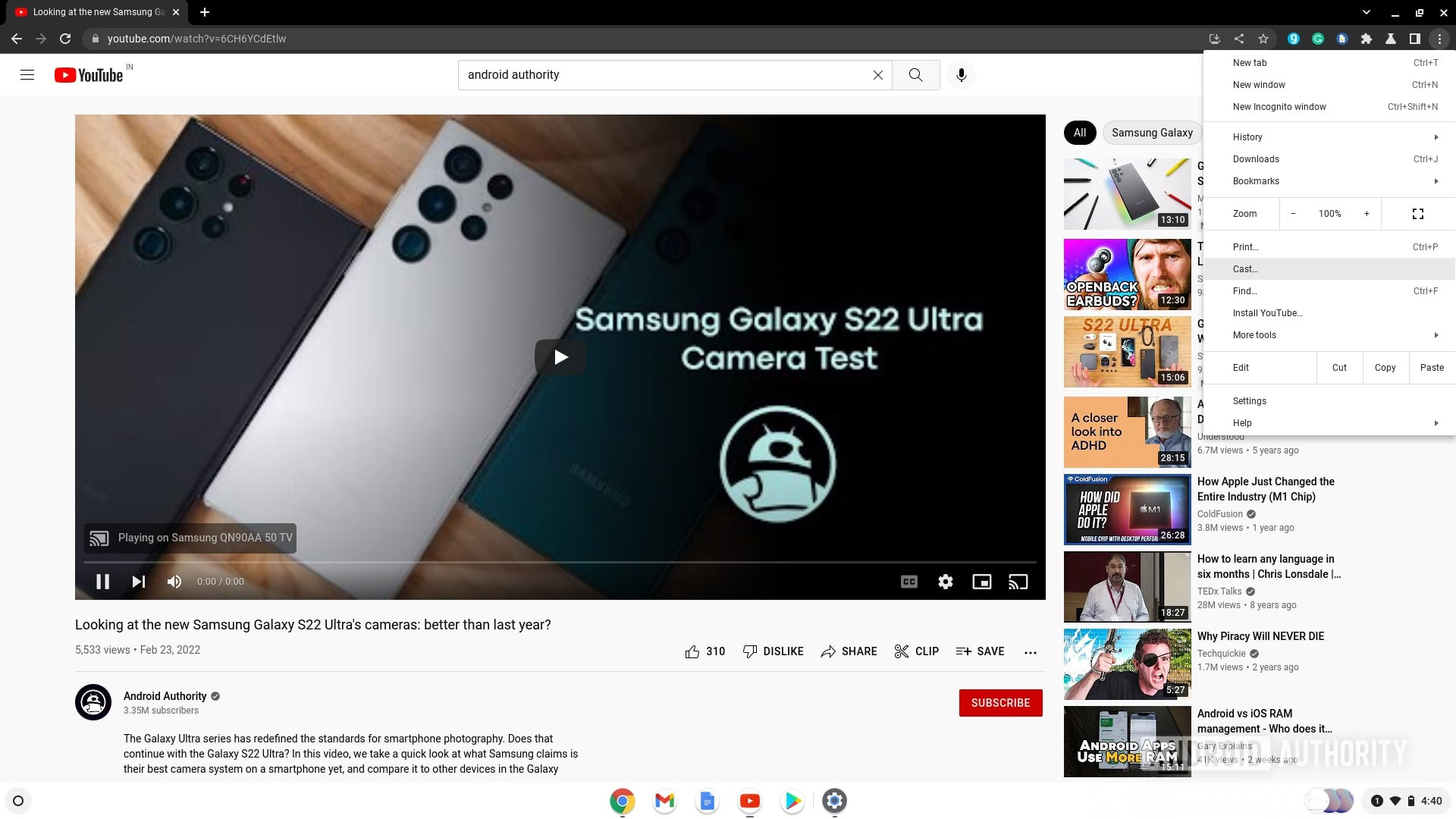
A pop-up will show you the available screens you can cast to. Click your preferred display.
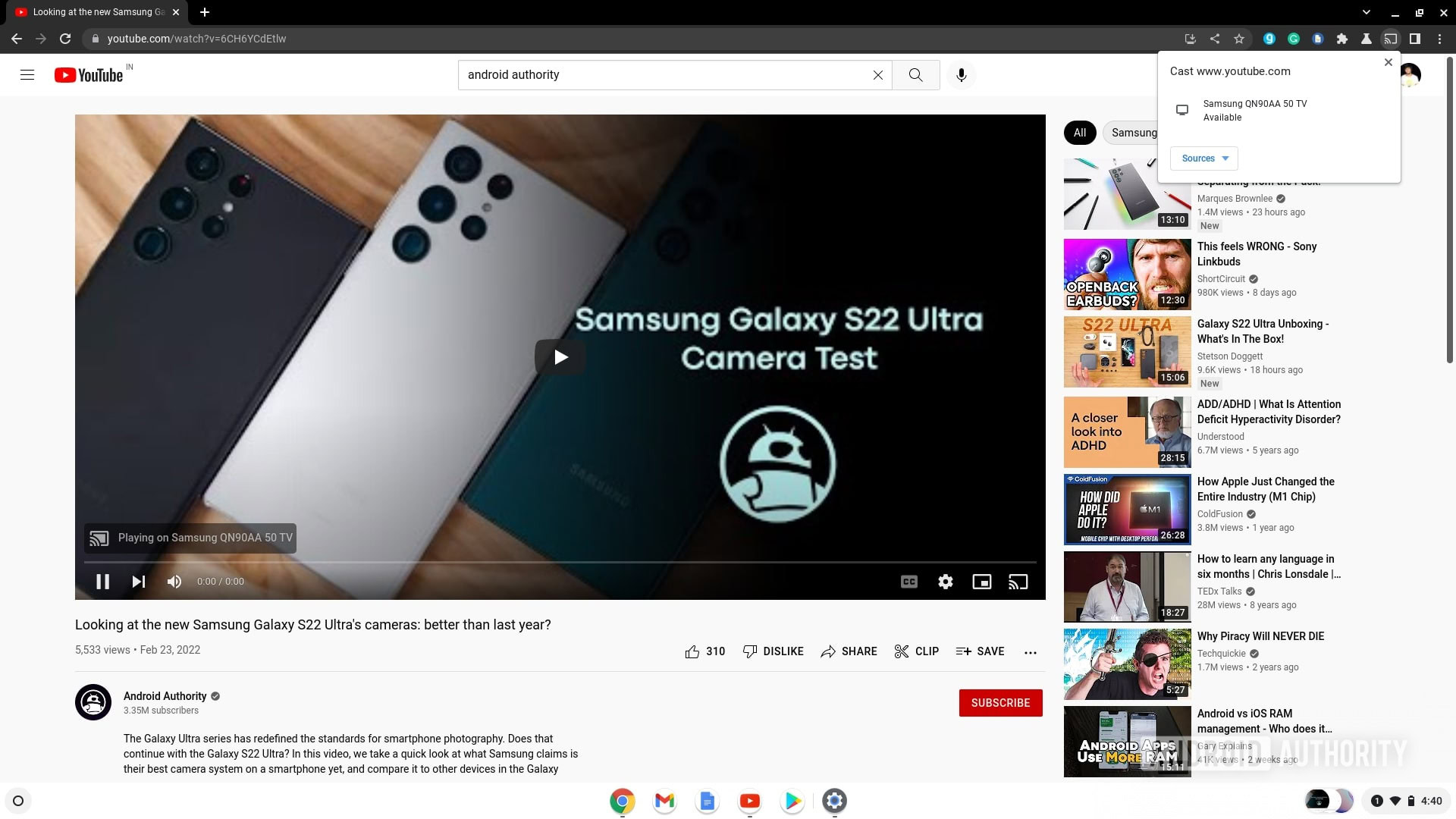
To switch the source from the tab to the desktop, click the Sources button in the casting pop-up, and click the preferred choice.
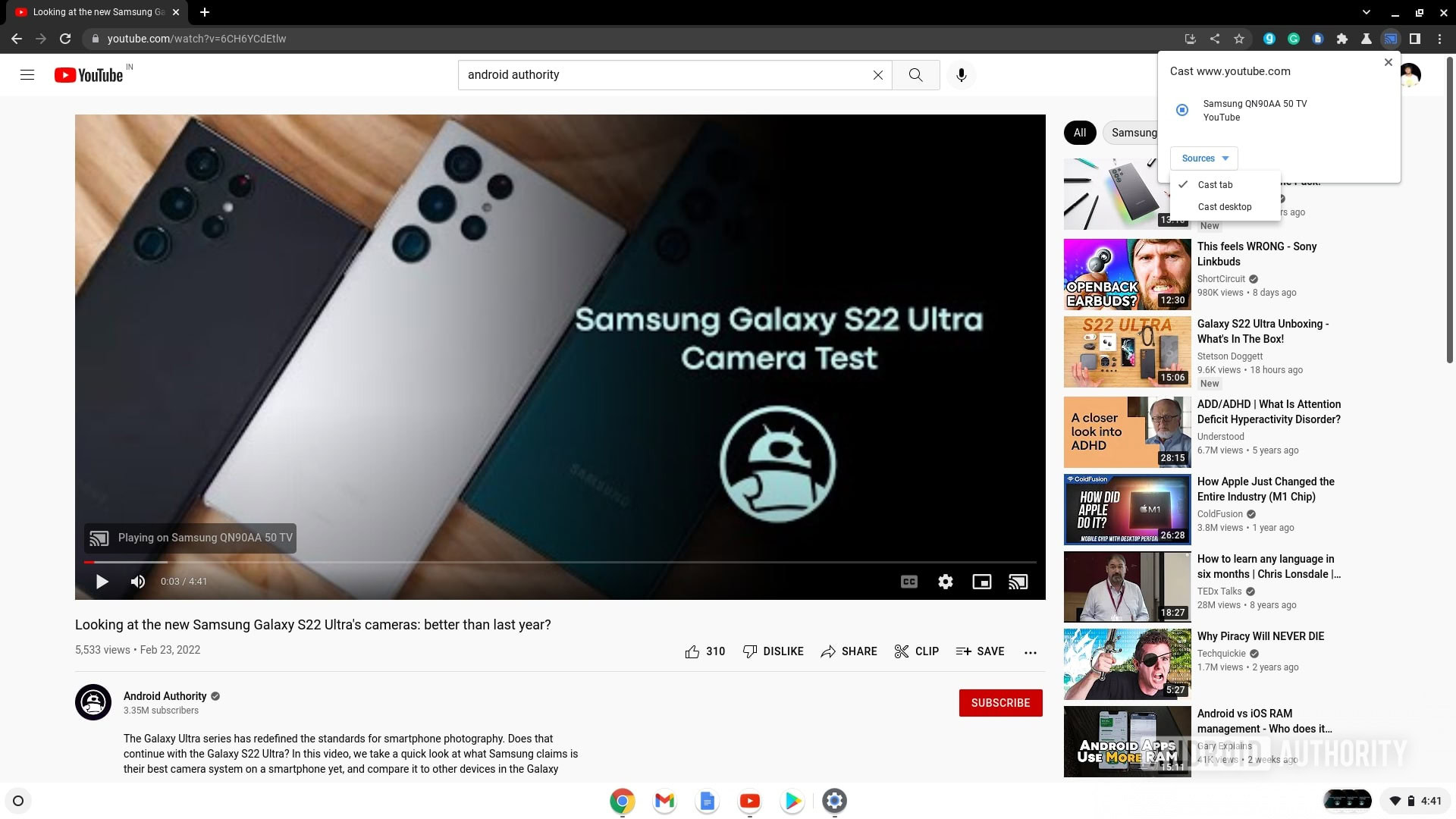
To stop casting, click the cast button showing in the Google Chrome toolbar, and click the name of your display.
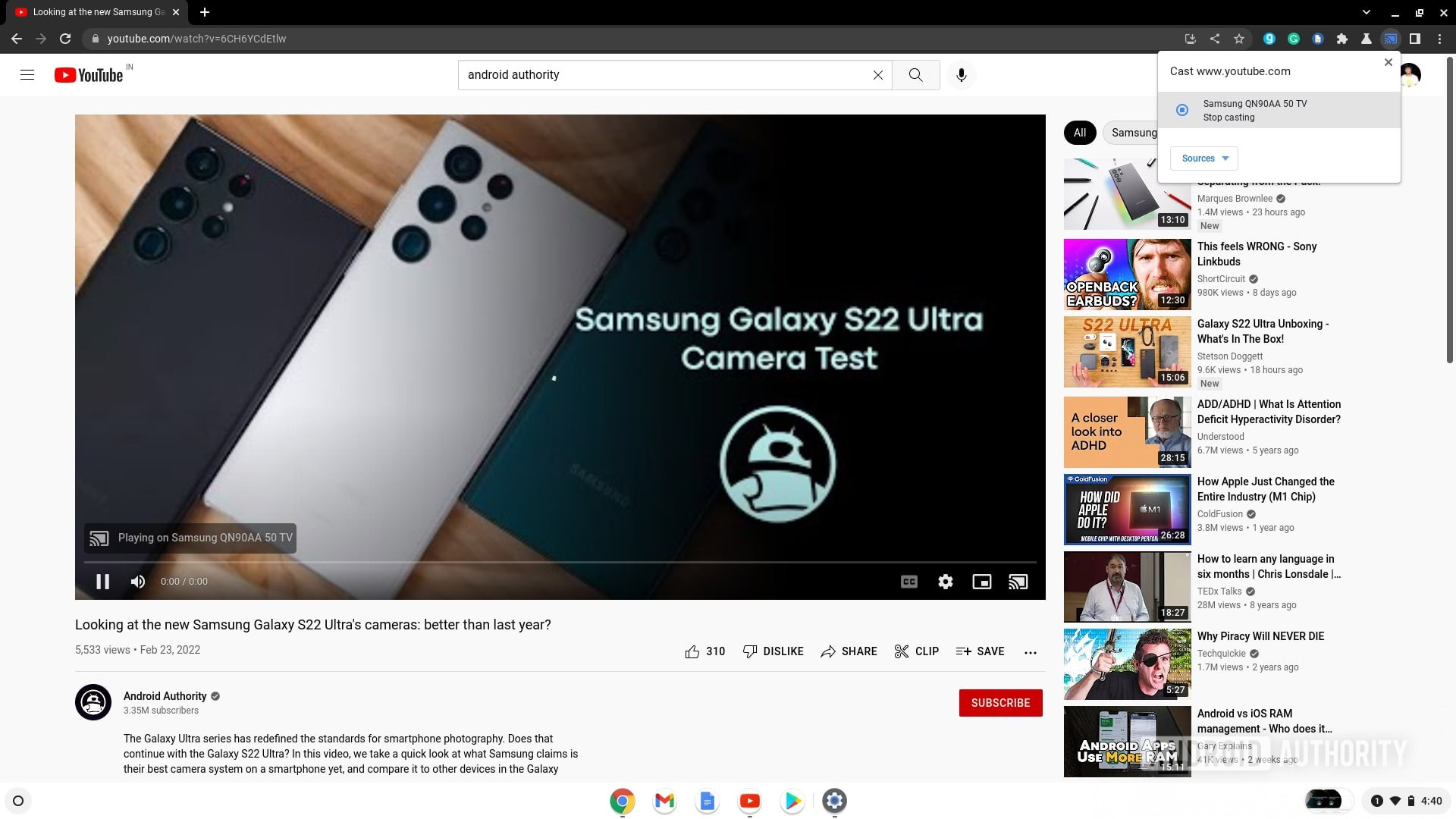
Using Chrome Remote Desktop
Chrome Remote Desktop is a slightly different way to connect a Chromebook to a monitor, but a working solution nonetheless. You can use Chrome Remote Desktop to remotely connect a Chromebook to a monitor. You’ll need to have two systems for this to work — a Chromebook, and another system with Google Chrome installed and connected to the monitor.
Install Chrome Remote Desktop on the Chromebook and the other system, by clicking Add to Chrome.
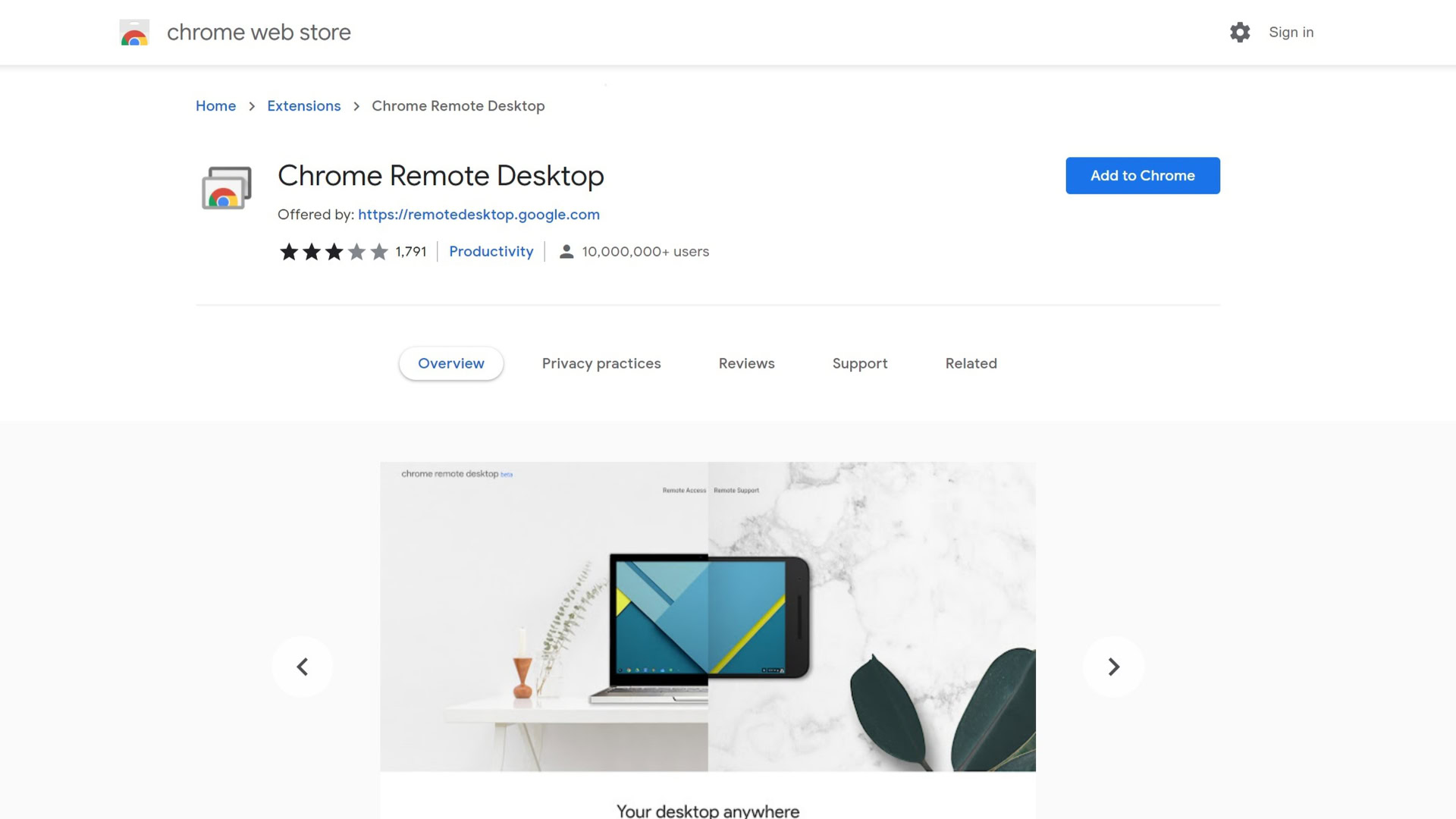
After installation, open the Chrome Remote Desktop web app on both systems. Click on + Generate Code under the Share this screen tab in the Chrome Remote Desktop web app on your Chromebook. You’ll get a code that’s valid for five minutes.
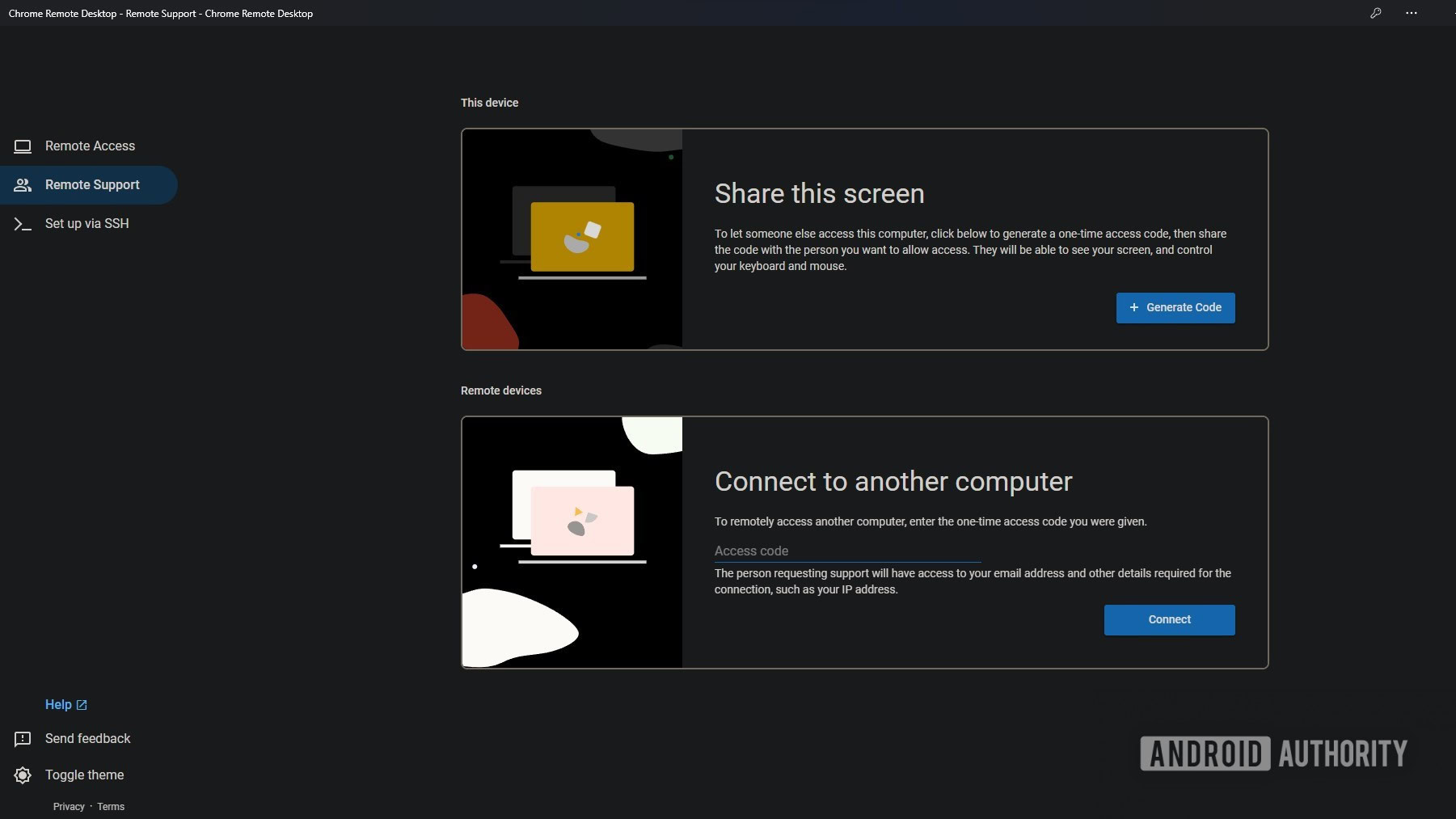
In the web app on the other system connected to the monitor, enter the access code under the Connect to another computer section, and click Connect. Give permission for remote access on your Chromebook when prompted.
Read more: What is Chrome OS?
FAQs
Can I use a Chromebook as a second monitor?
Yes, Duet Display costs $10 on the Play Store and operates over Wi-Fi to send and receive video signals from another computer. Using this app, you’ll be able to cast to and from Windows, Mac, and Android devices.
Can you connect a Chromebook to a VGA monitor?
Yes, you can connect your Chromebook to a VGA monitor. Although VGA ports are relatively rare now since they’re old, you can still use an HDMI to VGA or USB-C to VGA adapter.
How many monitors can I connect to a Chromebook?
Google says Chromebooks can support up to three external screens. This number will vary by your Chromebook’s processor and how many video out-capable ports are on the Chromebook.